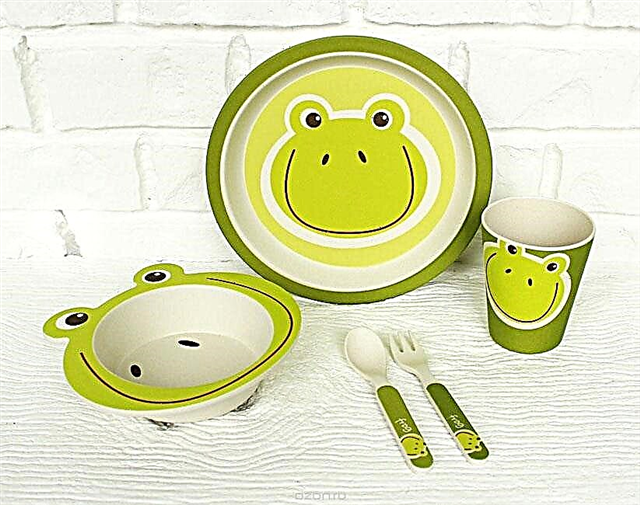Yesterday your baby was so soft and obedient, but today he is having tantrums, is rude on any occasion, categorically refuses to comply with mom's requests. What happened to him? Most likely, the child entered the so-called crisis of three years. Agree, it sounds impressive. But how should adults react to such childish behavior and what to do for parents tired of whims?
What you need to know about the crisis of three years?
In the psychological literature, a three-year-old crisis is a special, relatively short life period of a child, which is characterized by significant changes in his mental development. The crisis does not necessarily occur on the third birthday, the average age of onset is from 2.5 to 3.5 years.
"I do not want! I won't! Do not! I myself! "
- The period of stubbornness begins at about 1.5 years.
- As a rule, this phase ends by 3.5-4 years.
- The peak of stubbornness occurs at 2.5-3 years.
- Boys are more stubborn than girls.
- Girls are capricious, more often than boys.
- During the crisis period, attacks of stubbornness and moodiness occur in children 5 times a day. Some have up to 19 times.
A crisis is a restructuring of a child, his growing up.
The duration and severity of manifestations of emotional reactions largely depend on the temperament of the child, the family style of upbringing, the characteristics of the relationship between the mother and the baby. Psychologists are sure that the more authoritarian the relatives behave, the brighter and sharper the crisis becomes. By the way, it can increase with the beginning of a visit to kindergarten.
If recently parents did not understand how to teach children to be independent, now there is too much of it. Phrases "I myself", "I want / I do not want" are heard regularly.
The child is aware of himself as a separate person, with his own desires and needs. This is the most important neoplasm of this age crisis. Thus, such a difficult period is characterized not only by conflicts with mother and father, but also by the emergence of a new quality - self-awareness.
And yet, despite the apparent adulthood, the baby does not understand how to get recognition and approval from parents. Adults continue to treat the child as a small and unintelligent, but for him he is already independent and big. And such injustice makes him rebel.
7 main signs of a crisis

In addition to striving for independence, the three-year crisis has other characteristic symptoms, thanks to which it cannot be confused with bad behavior and child harm.
1. Negativism
Negativism forces the baby to oppose not only his mother's, but also his own desire. For example, parents offer to go to the zoo, and the baby flatly refuses, although he himself really wants to see the animals. The point is that the proposals come from adults.
Disobedience and negative reactions should be distinguished. Disobedient children act according to their wishes, which often go against the wishes of their parents. By the way, negativism is often selective: the child does not fulfill the requests of an individual person, most often of a mother, and behaves as before with the rest.
Advice:
You should not speak to children in a commanding tone. If your child has a negative attitude towards you, give him the opportunity to calm down and move away from excessive emotions. Sometimes the opposite requests help: "Don't get dressed, we're not going anywhere today".
2. Stubbornness
Stubbornness is often confused with persistence. However, persistence is a useful strong-willed quality that allows the little man to achieve the goal, despite the difficulties. For example, to finish building a house of cubes, even if it is falling apart.
Stubbornness is distinguished by the desire of the kid to stand his ground to the end only because he has already demanded it once. Let's say you invited your son to dinner, but he refuses. You start convincing, and he replies: "I have already said that I will not eat, so I will not".
Advice:
Do not try to convince the baby, because you will deprive him of the chance to get out of a difficult situation with dignity. A possible way out is to say that you leave food on the table, and he can eat when he gets hungry. This method is best used only during a crisis.
3. Despotism

Most often, this symptom occurs in families with a single baby. He tries to get his mother and father to do as he wants. For example, a daughter requires her mother to be with her all the time. If there are several children in the family, then despotic reactions manifest themselves as jealousy: the baby screams, stomps, pushes, takes toys from his brother or sister.
Advice:
Don't be manipulated. And at the same time, try to pay more attention to the children. They must realize that parental attention can be attracted without scandals and tantrums. Attract the baby to household chores - cook dinner for dad together.
4. The symptom of depreciation
For the child, the value of old attachments disappears - to people, favorite dolls and cars, books, rules of behavior. Suddenly, he begins to break toys, tore up books, call names or grimace in front of his grandmother, utter rude words. Moreover, the baby's lexicon is constantly expanding, replenishing, including with various bad and even indecent words.
Advice:
Try to distract children with other toys. Instead of cars, take up the constructor, instead of books, choose drawing. Frequently look at pictures on how to behave with other people. Just do not read lectures, it is better to play the child's reactions that disturb you in role-playing games.
5. Obstinacy
This unpleasant symptom of a crisis is impersonal. If negativism concerns a specific adult, then obstinacy is aimed at the usual way of life, at all the actions and objects that relatives offer to the child. She is often found in families in which there are disagreements about parenting between mom and dad, parents and grandmother. The kid simply stops fulfilling any requirements.
Advice:
If the baby does not want to clean up toys right now, take him on other activities - for example, draw. And after a few minutes you will find that he himself will begin to put cars in the basket, without your reminder.
6. Riot
A three-year-old is trying to prove to adults that his desires are as valuable as their own. Because of this, he goes into conflict for any reason. It seems that the kid is in a state of undeclared "war" with others, protesting against their every decision: "I do not want and I will not!".
Advice:
Try to remain calm, friendly, and listen to children's opinions. However, insist on your decision when it comes to child safety: "You can't play with a ball on the road!"
7. Self-will
Self-will is manifested in the fact that children strive for independence, and regardless of the specific situation and their own capabilities. The child wants to independently buy any product in the store, pay at the checkout, cross the road without holding his grandmother's hand. It is not surprising that such desires do not cause much delight in adults.
Advice:
Allow your baby to do what he wants to do. If he does what he wants, he will receive invaluable experience, if he fails, he will do it next time. Of course, this only applies to situations that are absolutely safe for children.
What should parents do?
First of all, adults need to understand that children's behavior is not bad heredity or harmful nature. Your child is already big and wants to become independent. It's time to build a new relationship with him.
- React in a balanced and calm manner. It should be remembered that the baby, by his actions, tests the parental nerves for strength and looks for weak points that can be pressed. Also, you should not shout, break down on children, and even more so physically punish - harsh methods can aggravate and prolong the course of the crisis (Why you can't spank a child - 6 reasons).
- Set reasonable limits. There is no need to hammer the life of a little person with all kinds of prohibitions. However, you should not go to the other extreme, otherwise, due to permissiveness, you risk raising a tyrant. Find the "golden mean" - reasonable boundaries, beyond which it is categorically impossible to cross. For example, it is forbidden to play on the road, to walk in cold weather without a headdress, or to skip a nap.
- Encourage self-reliance. Anything that does not pose a danger to the child's life, the child can try to do, even if in the process of learning a few mugs break (to punish the child or not for accidental offenses?). Does your baby want to paint on wallpaper? Attach a drawing paper to the wall and give some markers. Shows a genuine interest in your washing machine? A small basin of warm water and doll clothes will distract from tricks and whims for a long time.
- Give the right to choose. Parental wisdom suggests giving even a three-year-old baby the choice of at least two options. For example, do not force outer clothing on him, but offer to go outside in a green or red jacket :). Of course, you still make serious decisions, but you can give up on unprincipled things.
How to deal with whims and tantrums?
 In most cases, the bad behavior of three-year-olds - whims and hysterical reactions - is aimed at attracting parental attention and getting the desired thing. How should a mother behave during a three-year crisis to avoid constant tantrums?
In most cases, the bad behavior of three-year-olds - whims and hysterical reactions - is aimed at attracting parental attention and getting the desired thing. How should a mother behave during a three-year crisis to avoid constant tantrums?
- During an affective outburst, it is useless to explain something to the baby. It is worth waiting until he calms down. If the hysteria is found in a public place, try to divert away from the "public" and divert children's attention. Remember what kind of cat you saw in the yard, how many sparrows were sitting on a branch in front of the house.
- Try to smooth out outbursts of anger with the help of the game. The daughter does not want to eat - sit next to the doll, let the girl feed her. However, soon the toy will get tired of eating alone, so one spoon for the doll, and the second for the baby (watch the video at the end of the article).
- To prevent whims and tantrums during a crisis, learn to negotiate with children before starting any action. For example, before going shopping, agree on the impossibility of purchasing an expensive toy. Try to explain why you can't buy this typewriter. And be sure to ask what the baby would like to receive in return, offer your own version of entertainment.
To minimize the manifestation of tantrums and whims, it is necessary:
- stay calm without showing irritation;
- provide the child with attention and care;
- offer the kid himself to choose a way to solve the problem ("What would you do in my place?");
- find out the reason for this behavior;
- postpone the conversation until the end of the scandal.
READ IN DETAIL: How to deal with child hysteria: advice from a psychologist
Some parents, after reading our article, will say that they have not observed such negative manifestations in their three-year-old children. Indeed, sometimes a crisis of three years proceeds without obvious symptoms. However, the main thing in this period is not how it passes, but what it can lead to. A sure sign of the normal development of a child's personality at this age stage is the emergence of such psychological qualities as perseverance, will and self-confidence.
Thus, a three-year-old crisis is absolutely normal for a growing up child, which will help him become an independent person. And one more important point - the more trusting and softer the relationship between the baby and the mother, the easier it will go through this stage. The irritation, categoricalness and screaming of adults will only aggravate the child's negative behavior.
- How to properly go through the crisis periods of childhood and adolescence and foster confidence and independence in a child. Tips for parents
- Mom's experience: how we dealt with a sleep crisis in a week
- 10 reasons for bad behavior in children




